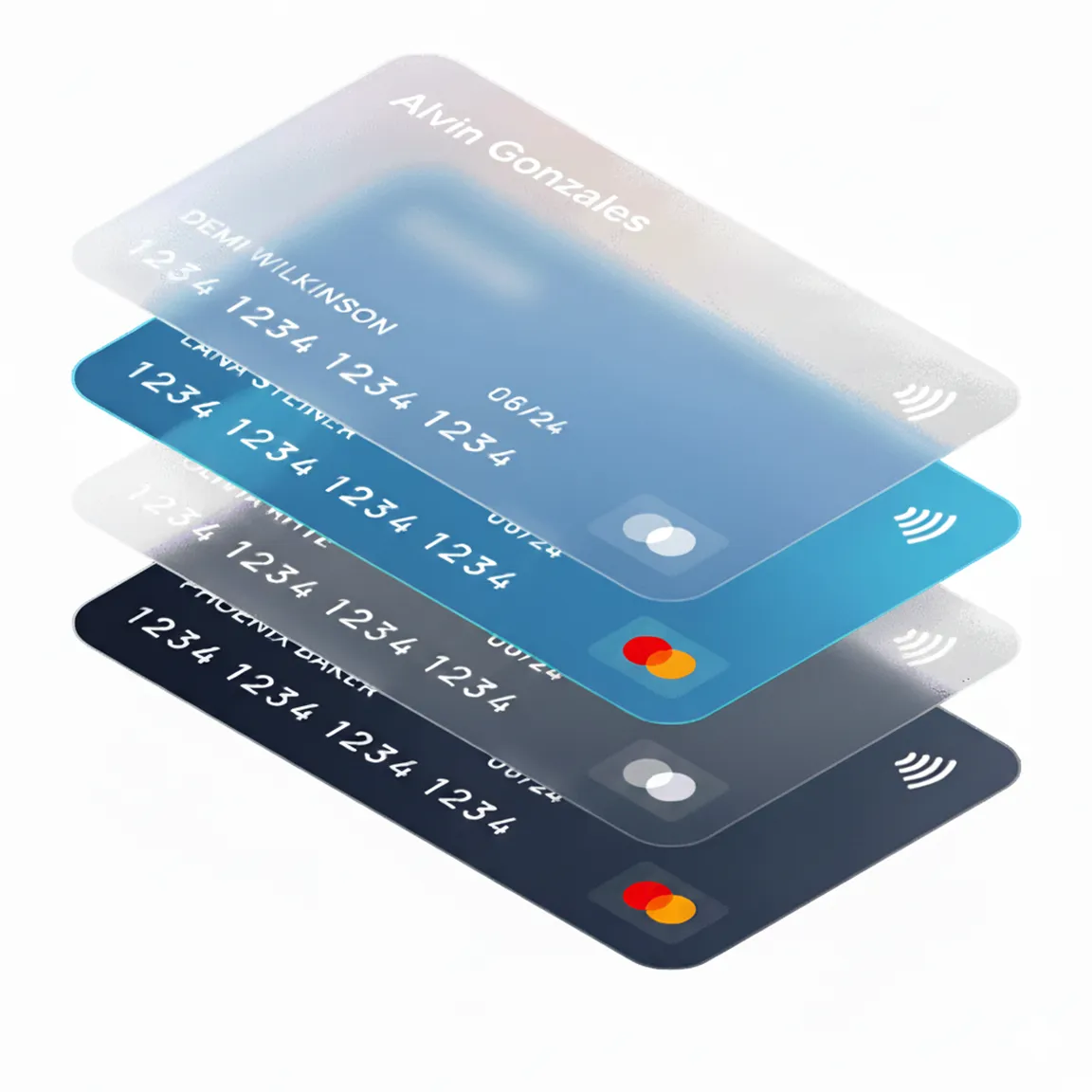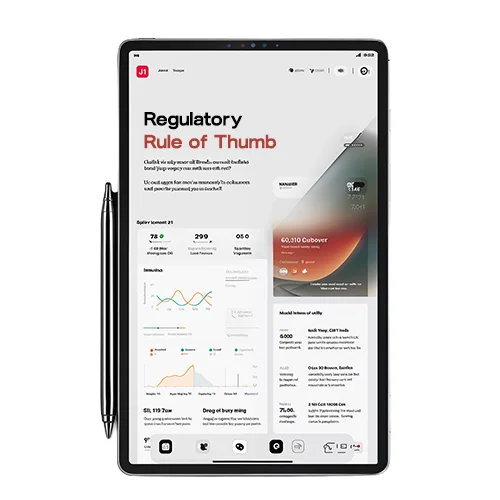
NFT & Virtual Asset
Licensing for
Gaming in Dubai
(VARA Compliance)
If your platform enables users to trade, transfer, or cash out in-game NFTs or tokens, those features fall under Dubai's Virtual Asset regime.
The Virtual Assets Regulatory Authority (VARA) oversees all virtual asset activities - including NFT minting, secondary trading, or custodial services - across Dubai (outside the DIFC). VARA's rulebooks set strict requirements on governance, AML/CFT, technology, ad market conduct to ensure regulatory compliance and investor trust.
Who Needs License NFTs & Virtual Asset Activities in Dubai Gaming?
- In-game tokens and NFTs are classified as virtual assets, and require a VARA license if they are tradable, transferable, or redeemable - not if they are strictly locked, non-transferable, or cosmetic only.
- VARA only regulates specific virtual asset activities - such as the issuance, trading, custody, or brokerage of NFTs/tokens - not gaming itself or general game features.
- Compliant licensing is essential to maintain access to banking, payment providers, and void regulatory enforcement or app store removals. Operating without a license when required risks fines, business interruption, and loss of market trust.
Checklist:
- Are users able to trade, sell, or transfer NFTs or tokens for value on your platform?
- Do you offer custodial wallets for in-game assets?
- Is there an off-ramp to cash out NFTs/tokens for fiat or crypto?
If "yes" to any: VARA licensing is likely required. If "no" - and assets are not transferable - VARA may not apply.
- Minting NFTs: Creating digital assets (NFTs) that are tradable, sellable, or usable for utility (such as memberships, gaming items, or access rights).
- Listing, Trading, Auctioning: Facilitating buying, selling, or auctioning NFTs via marketplace listings, peer-to-peer trades, or auctions.
- Escrow & Custody Services: Holding NFTs or digital assets in wallets for buyers, sellers, or investors while transactions are processed.Providing wallet infrastructure to hold NFTs or related digital assets for users, buyers, sellers, or investors during transactions.
Key Compliance Note: Platforms offering non-transferable, cosmetic-only, or strictly closed-loop NFTs may not require VARA licensing. Always map your platform's features to exact regulatory definitions and exclusions.
- Tradable / transferable collections and tokens count as virtual asset issuance under VARA. Activity goes beyond marketing - once assets can be sold, resold, or exchanged, a VARA license may be mandatory.
- Embedded utility tokens / in-game currencies also face regulation if users can trade or redeem them for value across the ecosystem.
- Proper licensing with VARA demonstrates your project's legal compliance, enhances brand reputation, supports banking and marketplace acess, and protects from fines or business restrictions.
Assets that are non-transferable, have no external value, or are for closed-loop internal use may not require licensing - however, every project should verify its regulatory mapping before launch.
- Custodial wallets and marketplaces—those safeguarding user assets—require a robust VARA license, meeting strict standards for cybersecurity, transaction monitoring, and governance.
- On/off-ramps that convert between fiat and crypto must comply with AML, sanctions, and reporting protocols as required by VARA.
- Why it matters: Infrastructure providers are foundational to the regulated Dubai digital asset ecosystem. VARA licensing signals security and regulatory trust, enabling partnerships with major brands and seamless payment integrations.
Only platforms directly managing or transferring client assets require VARA licensing. Tech providers who do not hold assets or process transactions (such as pure smart contract developers) may be exempt but should still ensure general compliance with UAE data laws and technical standards.
What Falls Under VARA Licensing for Gaming and NFTs
Typical examples include NFT auction houses, secondary markets, and in-game item trading hubs.
Why it matters:
Exchanges handle large trading volumes and user assets, which increases regulatory scrutiny and risk for fraud or market manipulation. Obtaining a VARA license ensures your marketplace meets legal compliance, transparency, and security standards, protecting both your business and its users.
Examples include NFT resellers who take a spread, gaming publishers acting as order routers, and platforms that make markets for in-game tokens.
Why it matters:
Brokers and intermediaries have a direct impact on pricing and liquidity, and are subject to regulatory oversight to ensure fair dealing and conflict-of-interest controls. VARA licensing demonstrates your commitment to transparent, compliant operations—protecting both your users and investors from abuse and market manipulation.
Why it matters:
Custody is a critical regulatory category, demanding strict compliance around asset safety, cybersecurity, wallet segregation, incident response, and operational resilience. VARA sets high standards for custody providers, including real penetration testing, disaster recovery drills, and clear audit trails. A custody license demonstrates your platform's capability to protect users, satisfy banks and investors, and maintain license under Dubai's regulatory oversight.
Why it matters:
Issuing virtual assets introduces risks for both investors and consumers, making regulatory oversight essential. The VARA license gives you a secure, legal pathway to launch tokens, raise funds, and operate NFT projects in Dubai - removing uncertainty and ensuring full compliance with market disclosure, investor protection, and ongoing supervision standards.
VARA's Exact Scope: What Activities Are Regulated?
Not everything is “VARA”—Where GCGRA (Gaming Regulator) & CBUAE (Payments) Fit in Dubai's Web3 & Gaming Compliance
Commercial Gaming / Gambling
Payment Tokens & Stablecoins
E-Money & Stored Value Facilities
Securities-Like NFTs & Investment Features
Need Help? Connect Now!
Why get licensed? The value, impact, and strong WHY
Legitimacy that unlocks growth
User trust → retention & spend
Scale without surprises

Marketing the right way
VARA Design Standards for Web3 Games & NFT Marketplaces
If your platform handles NFT issuance, trading, custody, or payments, VARA expects you to embed key compliance controls into your core design. Compliance is not an afterthought—it must be foundational, covering governance, AML/CFT, cybersecurity, consumer protection, and operational transparency. Proper alignment with these standards is essential for regulatory approval, market credibility, and sustainable growth in Dubai’s digital asset sector.
1. KYC/KYB + Sanctions Screening for NFT Marketplaces
KYC/KYB data equips VARA and regulators with visibility into who is minting, trading, or selling NFTs at volume, supporting market integrity and regulatory transparency.
Why it matters: Implementing strong onboarding and screening protocols keeps your platform eligible for banking and payments, reduces fraud risks, and builds institutional trust—foundations for sustainable growth and investor appeal in Dubai’s NFT and Web3 sector.
Custody-Grade Security Requirements for VARA Compliance
What VARA Requires Custodians to Prove:
- Hot/Cold Wallet Segregation: Custodians must separate accessible online wallets from offline cold wallets, limiting exposure in case of hacks or failures.
- Key Management & Encryption: Private keys must be protected with enterprise-level encryption and controls to prevent unauthorized access or insider misuse.
- Business Continuity & Disaster Recovery (BCP/DR): Firms must maintain and test plans to guarantee secure operation—no matter the outage or cyber threat—ensuring client funds remain protected.
- Penetration Testing & Incident Response: Frequent, independent testing plus fast-response playbooks keep security up to standard and allow quick, transparent action should vulnerabilities arise.
VARA requires all custody providers to operate as independent legal entities with distinct governance and daily reconciliations, and to follow comprehensive compliance, tech, and risk rules for every asset held. Solid compliance here is key to earning institutional trust, regulatory approval, and audit-ready status in Dubai’s regulated market.
VARA Market-Conduct Controls: Ensuring Fairness & Trust in Dubai's Web3 Sector
For solid regulatory alignment, platforms must embed controls for anti-fraud, insider trading, market manipulation, royalty and revenue transparency, conflict-of-interest management, and full disclosures for all creator and user transactions. These controls are not optional; they define how creators, buyers, and investors can trust your platform and are central to sustaining licensing, investor protection, and institutional partnerships in Dubai’s regulated digital economy.
Conflict-of-Interest Policies for Platforms & Insiders
Rules on Royalties & Revenue Splits

Listing Standards & Disclosures for NFTs & Tokens
Anti-Wash Trading & Anti-Manipulation Systems
Why This Matters?
Market-conduct controls are not optional—they are the trust framework for Web3 in Dubai. By meeting VARA’s expectations, your platform proves it is transparent, fair, and investor-ready, setting you apart in a fast-growing digital asset market.
Full details can be found in VARA’s official rulebooks: rulebooks.vara.ae
VARA expects NFT marketplaces and Web3 games to embed compliance into their design, covering identity checks, custody security, fair trading, transparent issuance, clean transfers, and ethical marketing. These design patterns are not obstacles—they are trust builders that make your platform credible to regulators, players, and investors alike.
What You Must Disclose
Tokenomics (Supply, Pricing, Utility)You must publish the total supply of tokens/NFTs, their initial and ongoing pricing, and the specific use cases or benefits. This prevents hidden inflation or misleading promises.
- Unlock Schedules & Vesting RulesIf tokens are distributed over time (to founders, developers, or early investors), those vesting schedules must be disclosed. Buyers should know exactly when additional supply may enter circulation.
- Drop Mechanics (Auctions, Rarity, Allocations)Whether you are running an auction, randomized mint, or tiered rarity structure, all mechanics must be transparent. Buyers should understand how assets are allocated and what the odds or rules are.
- Risks in Plain LanguageDisclosures must explain potential risks—such as volatility, lack of liquidity, or platform/game dependencies—in non-technical, easy-to-understand language so retail buyers are not misled.Why This Matters
- Investor & User Protection – People can only make informed decisions if they know the full rules of the game. Transparency builds trust and avoids disputes.
- Licensing Requirement – VARA specifically checks your issuance process and whitepapers. If you can’t demonstrate clear, full disclosures, your license or approval may be denied.
- Market Integrity – Transparent issuance prevents manipulation, unfair allocations, and “hidden insider advantages,” aligning your project with global standards.
- Brand Reputation – Projects that prioritize clarity attract bigger communities, institutional investors, and global partners who require regulatory compliance.
Key Takeaway:
Whether you’re launching an NFT drop, token sale, or in-game currency, full disclosure is non-negotiable under VARA. Transparency isn’t just good practice—it’s a licensing condition and the foundation of long-term trust in your project.
What VARA Expects You to Implement
-Monitoring of Virtual-Asset FlowsPlatforms must track the origin, movement, and destination of assets in real time. This helps identify unusual transaction patterns that could signal illicit activity.
- Fraud, Scam & Suspicious Activity DetectionAutomated systems and manual oversight should be in place to detect and block fraud attempts, phishing, and suspicious transfers. VARA expects firms to act quickly on red flags and file reports when needed.
- Travel Rule ComplianceTransfers must comply with the Financial Action Task Force (FATF) Travel Rule, which requires platforms to securely share sender and receiver data when moving assets between entities. This prevents anonymity from being exploited in cross-platform transfers.
Why This Matters
- AML/CFT Protection – Transfers are the most common entry point for money laundering and terrorist financing. VARA ensures platforms act as the first line of defense.
- Regulatory Compliance – Without proper transfer hygiene, you risk enforcement actions, fines, or even license suspension.
- Market Trust – Users, partners, and banks need assurance that your platform is not a conduit for financial crime. Strong hygiene gives you credibility with regulators and financial institutions.
- Global Recognition – By embedding FATF Travel Rule standards, your business is aligned with international compliance norms, making cross-border partnerships easier.
Key Takeaway:
Transfers may seem routine, but under VARA they are high-risk events. Meeting hygiene standards—through monitoring, fraud detection, and Travel Rule compliance—keeps your platform secure, trusted, and fully compliant with Dubai’s AML/CFT framework.
What VARA Expects in Your Marketing
- No Misleading Claims on Value or Returns
You cannot advertise tokens, NFTs, or virtual assets with promises of “guaranteed profits”, “safe investments”, or exaggerated claims about value. Marketing must be factual, balanced, and supported by evidence.
- Age-Appropriate Targeting
Advertising must not target individuals under 18 years old for products that are financialized (e.g., tokens, DeFi, NFTs with speculative value). Campaigns must be responsibly placed to avoid youth audiences.
- Clear Complaint-Handling Processes
VARA expects every licensed project to provide accessible complaint channels, making it easy for users to raise concerns and seek redress. Complaints must be logged, monitored, and resolved fairly.
Why This Matters
- Avoids Enforcement Risks – Misleading promotions are one of the fastest triggers for fines, license suspensions, or reputational damage.
- Protects Your Brand – Marketing that is transparent, responsible, and regulator-approved strengthens your credibility with users and partners.
- Ensures Campaign Continuity – Non-compliant ads can be taken down or blocked; VARA-compliant campaigns remain live, delivering long-term ROI.
- Builds Trust with Investors & Regulators – Demonstrating alignment with VARA’s marketing standards signals maturity and professionalism in a market where hype often leads to failure.
Key Takeaway:
Marketing under VARA isn’t about hype—it’s about truth, responsibility, and transparency. By following the code, your Web3 or NFT project avoids costly enforcement action, safeguards its reputation, and builds lasting trust with customers and investors.
Do You Need a VARA License?
Players Can Trade NFTs or Tokens
Why it matters: Trading creates market integrity and AML risks, so VARA requires a license to ensure fair dealing, disclosures, and fraud prevention.
You Custody User Assets or Operate Escrow Wallets
Why it matters: Custody is about asset safety. VARA licensing proves your security, wallet management, and recovery processes meet global standards.
You Mint Items or In-Game Currency That Can Be Transferred
Why it matters: Once an asset has mobility and value, it enters VARA’s scope. Licensing ensures your tokenomics, drops, and disclosures are transparent and regulator-approved.
You Curate/Advise on Investments or Manage Pooled Assets
Why it matters: This involves investment risk. Licensing ensures your advice is conflict-free, transparent, and regulator-supervised.
You Provide Payments or Settlement Between Buyers and Sellers
Why it matters: Payments and settlements trigger AML and sanctions compliance. VARA ensures your flows are monitored, fraud-proof, and Travel Rule-aligned.
Need Help? Connect Now!
What About Closed-Loop Economies?
Not every in-game or platform currency automatically falls under VARA. If your tokens are designed as a strictly closed-loop system, you may be outside full VARA licensing requirements.

Non-transferable
Non-redeemable
Purely Cosmetic
However, there is a significant consideration.
Even if you believe your economy is closed-loop, assumptions can be risky:
Banking & Payment Providers
Investor Due Diligence
Regulatory Misjudgment

Do I Need a VARA License? Map Your Project Before You Launch
Platforms whose assets are strictly non-transferable, cosmetic, or locked in a closed-loop environment may be exempt from direct licensing, but assumptions are risky. Dubai’s regulatory climate puts the burden on founders to confirm scope—checking upfront saves costly surprises and ensures scalable, market-ready operations. For SEO and Google trust, make “VARA license Dubai,” “virtual asset compliance mapping,” and “gaming token legal requirements” anchor concepts.
Start your compliance journey now—schedule a VARA licensing consultation to validate your project’s regulatory alignment and avoid risks before launch.
Step‑by‑Step: Path to VARA Approval for Gaming & NFT Platforms
Launching a Web3 game or NFT marketplace in Dubai requires precise regulatory alignment. Follow this clear roadmap to secure a VARA license—covering key stages from initial concept to full-compliant operations. Each step helps founders, studios, brands, and infra teams map their business model to the right license category, meet strict documentation needs, and ensure ongoing regulatory compliance. Skipping these steps risks delays, penalty, and loss of investor trust.
Book an expert-led VARA roadmap session now to map your platform, get your documentation right, and launch in Dubai with regulatory certainty.
Before you launch your platform, accurately map all features to specific VARA licensed activities: Exchange/Trading, Brokerage, Custody/Wallets, VA Issuance/Tokenization, Transfers/Settlement, and Advisory. For complete coverage, also check overlaps outside VARA’s scope:
- GCGRA: Required for any game or platform with wagering or casino-style mechanics.
- CBUAE: Mandatory for stablecoins, payment tokens, or fiat settlement rails.
Next, select the right legal entity structure (DED mainland or free zone) based on licensing requirements, banking access, app-store eligibility, and future scalability.
Why it matters:
Correct regulatory scoping is critical—misclassification is the main cause of licensing delays and cost overruns in Dubai. When done right, you’ll receive a clear activity map, a regulator matrix for VARA/GCGRA/CBUAE, the ideal entity choice, and an initial cost/capital plan—setting your project up for fast-track approval and future growth.
What You Prepare:
- Game Design & Tokenomics:
Document your utility model, total token supply, distribution rules, token sinks/sources, unlock and vesting schedules, and revenue splits. This enables VARA to confirm your project is fair, transparent, and sustainable.
- Marketplace Rules:
Set high listing standards, full asset and risk disclosures, and strong anti-manipulation controls for trading activity.
- Governance:
Provide detailed org charts, board/Senior Management Function (SMF) roles, and fit-and-proper documentation validating team integrity.
- AML/CFT Program:
Full KYC/KYB onboarding, sanctions screening, KYT monitoring, SAR/STR procedures, and Travel Rule strategy for robust financial crime controls.
- Custody & Security:
Specify your wallet model, hot/cold segregation, key management, BCP/DR plan, and ongoing penetration testing strategy.
- Marketing Compliance:
Claims policy, age gating, and brand guidelines in line with VARA’s Marketing & Promotions Rulebook.
- Financials:
Solid 3–5 year projections, liquidity and paid-up capital proof for ongoing stability.
- Ownership & UBO Disclosure:
Full ultimate beneficial owner (UBO) breakdown and shareholding structure for transparency.
Why it matters:
Delivering a regulator-ready package shortens review cycles, reduces delays, and proves your project is serious, fully transparent, and VARA-aligned.
SecureVisa Group Output:
SecureVisa Group provides end-to-end, audit-backed documentation mapped directly to rulebook requirements—helping you move from application to fast-track license approval, with minimal roadblocks.
When you file your VARA license application, attach all supporting documents and pay the application fee. VARA conducts a detailed review—expect follow-up RFIs (Requests for Information) around tokenomics, custody, AML/CFT, governance, or other compliance areas. Quickly submit clarifications, evidence, or updated policies as needed. Precision and responsiveness in this phase build your regulatory credibility and keep timelines on track.
SecureVisa Group Output:
- Submission receipt for your records.
- RFI tracker for regulator follow-up queries.
- Updated documentation artifacts in response to VARA requests.
Responsive, thorough engagement with VARA at this stage is key to securing timely licensing and approval for your NFT or gaming project.
Deposit Required Capital:
- Transfer the minimum paid-up capital for your activity to a Dubai bank, provide proof to VARA, and demonstrate you can fulfill regulatory and user obligations.
Close Cyber & Operational Gaps:
- Resolve all vulnerabilities, fortify wallet and encryption infrastructure, enhance monitoring, and secure access controls as flagged during review.
Finalize Vendor Contracts:
- Lock in agreements with critical providers—KYC/KYB for onboarding, blockchain monitoring (KYT), custody partners (MPC/HSM/wallet), and Travel Rule compliance vendors—with documented proof.
Deploy Market Surveillance & Transparency Tools:
- Launch wash-trading, insider abuse, and manipulation monitoring systems along with royalty engines and full asset disclosure frameworks.
Train Staff & Test Response:
- Deliver training to compliance and technical teams and run tabletop exercises simulating breaches or incidents. Document response readiness for VARA review.
Why it matters:
VARA only licenses firms that prove, in practice—not just on paper—that they can run secure, resilient, and fully compliant operations. Functional security, realistic risk scenarios, and institutional-grade controls earn final approval, accelerate launch timelines, and win trust from banks and investors.
Required Outputs:
- Dossier closing all conditional items
- Security and breach test reports
- Signed vendor agreements
- Board attestations on governance and readiness
Key Takeaway:
Final approval from VARA is earned by operational proof—live controls, tested systems, and a fully trained team ready for real-world market risk.
Maintaining capital adequacy, proactively updating risk assessments, refreshing policies, and passing periodic audits are all critical. Stay vigilant on marketing compliance, real-time market monitoring, and ongoing upgrades to custody and anti-fraud systems to protect your platform against regulatory, financial, and reputational risks.
Why it matters:
Licensing is not a one-off approval—it requires transparent, ongoing supervision by VARA. Continuous reporting and compliance updates secure your license, protect your brand and stakeholders, and create the foundation for scalable growth.
Common Pitfalls: How Gaming & NFT Teams Get VARA Compliance Wrong
Treating “Closed-Loop” Items as Exempt
Vague Tokenomics (No Unlocks/Risk Disclosures)
Non-Compliant Marketing Claims
No Market-Conduct Tooling (Wash Trading/Insider Risks)
Custody by Convenience (No Key Management/DR Plan)
Reach out to Our Support Team for assistance.
Costs & Capital: What Determines VARA Licensing Expenses for Gaming & NFTs?
A one-time, non-refundable fee paid when you file your license application with VARA.
Recurring fees that scale with your activity type (e.g., higher for exchanges or custodial marketplaces, lower for lighter issuance models).
The minimum paid-up capital you must hold to prove financial strength. Custody and exchange models usually require higher buffers, while token issuance or smaller marketplaces may have lighter requirements.
How SecureVisa Group Helps (Outcomes You Feel in Production)
SecureVisa Group doesn’t just hand you paperwork—we make sure you’re licensed, operational, and investor-ready. From regulator mapping to your first licensed NFT drop or game season, we give you the clarity, structure, and compliance muscle to scale in Dubai’s regulated Web3 economy.
What SecureVisa Group Offers:
SecureVisa Group breaks down your model and features, mapping each activity to the right regulator in Dubai:
- VARA: Oversees virtual asset trading, issuance (tokens/NFTs), custody, settlement, and digital asset advisory services across Dubai (excl. DIFC).
- GCGRA: Regulates any gambling mechanics, lotteries, or wagering within your platform.
- CBUAE: Covers businesses offering payment tokens, stablecoins, or fiat-settlement rails.
Why it matters:
Mapping your business to the right regulator from day one avoids rejected applications, reduces compliance costs, and builds investor trust.
SecureVisa Group’s end-to-end mapping ensures you only apply once—fully scoped, evidence-backed, and regulator-approved.
SecureVisa Group Scopes These VARA Activities:
- Exchange/Trading (crypto, NFTs, tokens)
- Brokerage/Intermediation (deal-making, order routing, market making)
- Custody/Wallets (asset safekeeping, wallet infrastructure)
- Token Issuance/Tokenization (NFT drops, in-game currency)
- Transfer/Settlement (peer-to-peer, cross-platform payments)
- Advisory/Management (investment advice, portfolio management, staking pools)
Entity Setup Guidance:
- DED Mainland: Broad scalability, direct UAE market/banking access.
- Free Zone: Simpler setup, specialized tax/operation benefits for startups
SecureVisa Group doesn’t just fill out forms—we analyze your model, growth path, and regulator mapping to ensure you only apply once, with the right activities and structure. This saves time, prevents costly licensing errors, and makes your project truly investor- and bank-ready the first time.
Why it matters:
Mis-scoping licenses means months of delays, wasted fees, and blocked business. Getting your mix and entity right unlocks credibility, compliance, and fast-track approval for Dubai’s regulated market.
What SecureVisa Group's Regulator-Ready Pack Includes:
- Governance & Ownership: Full disclosures on UBOs, shareholder structure, board/SMF roles, and fit-and-proper docs.
- AML/CFT Compliance: End-to-end KYC/KYB onboarding, sanctions screening, KYT monitoring, SAR/STR workflow, and Travel Rule adherence.
- Custody & Cybersecurity: Detailed wallet and key management, hot/cold segregation, encryption protocols, BCP/DR strategies, and penetration test documentation.
- Tokenomics & Issuance: Transparent supply, vesting and unlock plans, drop mechanics, royalties, and risk disclosures.
- Market-Conduct Controls: Systems for wash trading, insider abuse, royalty distribution, and conflict-of-interest prevention.
- Marketing Compliance: Policies for claims, age gating, complaint handling, and creator guidelines—fully VARA-aligned.
- Financials: 3–5 year projections, liquidity and paid-up capital proof.
- Ownership Transparency: UBO and shareholding structures, control rights.
Why it matters:
Providing a complete, regulator-ready pack shortens review time, reduces RFIs, and signals bankable, investor-ready professionalism.
SecureVisa Group goes beyond document preparation—delivering compliance, security, and legal frameworks that earn VARA’s trust and avoid trial-and-error delays.
Steps to Go Live:
- Resolve outstanding tech, security, or compliance issues flagged by VARA.
- Deposit your minimum paid-up capital with proof for regulatory review.
- Train all relevant staff—compliance, support, tech—on AML requirements, reporting, and incident readiness.
- Establish your reporting calendar for regulatory returns and event-driven notifications.
- Prepare for audits with thorough, test-ready documentation.
Why it matters:
Many projects stall after “in-principle approval” because they miss critical closing steps.
SecureVisa Group navigates these final conditions for you—ensuring smooth launch, ongoing compliance, and confidence for partners, banks, and investors.










